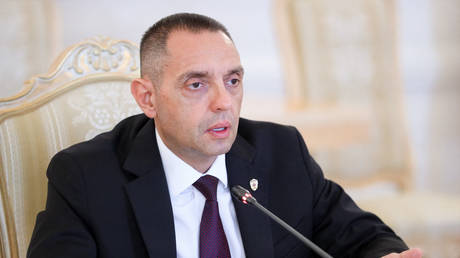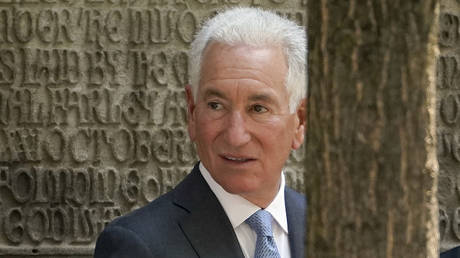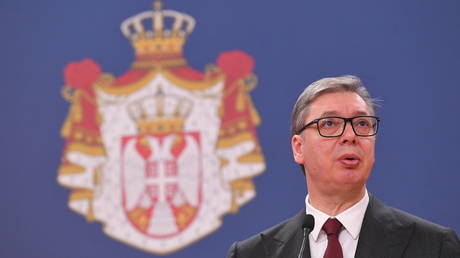
Brussels is only concerned with “revenge against free nations,” Serbian Interior Minister Aleksandar Vulin said
The Serbian government has slammed the latest package of EU sanctions targeting Russia’s oil exports, describing it as the “first EU sanctions package” against Serbia.
Restrictions on the maritime transportation of Russian oil would make it too expensive for Serbia and severely hit the nation’s economy, government officials said on Thursday. In a scathing statement, Serbian Interior Minister Aleksandar Vulin called the EU “the place of our future humiliation and suffering.”
Belgrade will now be “forced to buy more expensive Iraqi oil and thus lose hundreds of millions of euro,” he argued, accusing neighboring Croatia, which is an EU member state, of lobbying for the new measures.
Vulin said the only “consistent” feature of EU policy is “revenge on free nations,” and decried the fact that Western Balkan nations had not been exempted from the latest batch of anti-Russia measures.
The EU “introduced not the eighth package of sanctions against Russia but the first sanctions package against Serbia,” the minister said. He argued that this was why it is “better to be a militarily and politically neutral country” rather than a member of a club of nations that allows the “[psychological]complexes” of its members to run the show.
Serbian Prime Minister Ana Brnabic was equally critical of the new sanctions, saying they were introduced “at the expense of the lives and living standards” of all Serbian people. “It will cost us hundreds of millions of euro,” Brnabic told Serbia’s Happy TV broadcaster.
“What they thought they would do to Russia they did to us on Wednesday, because we depend on the oil pipeline in Croatia,” the prime minister added, accusing Brussels of “using energy for political blackmail and retribution.”
On Thursday, the EU announced the eighth package of restrictions on Russia which include a price cap and “further restrictions” on the maritime transportation of Russian crude oil and petroleum products to third countries. Serbia imports Russian oil by sea through a Croatian port terminal on the island of Krk, from which it is then transported through a pipeline to Serbian territory.
The new measures would make such imports at least 20% more expensive, according to Serbian media. In June, Serbian President Aleksandar Vucic warned that Serbia would not be able to import Russian oil after November 1 due to EU sanctions.




